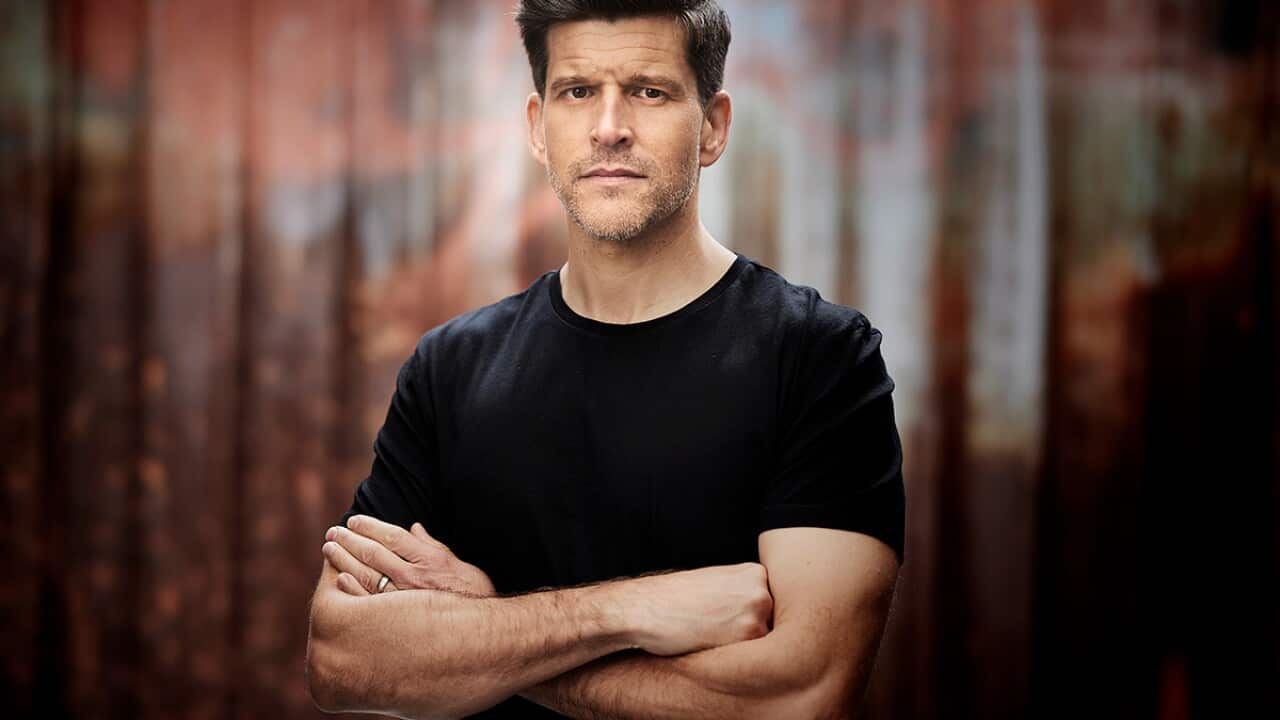Talking about mental illness isn’t easy to do. There’s a lot of judgement out in the community around the issue; there’s also a lot of people who think that if you can’t see someone else’s illness, then it isn’t really there. Even opening up to friends and family about it can be tough. When you’re in the public eye, it’s even more difficult.
As part of the SBS’s Australia Uncovered series of documentaries, Osher Günsberg: A Matter of Life and Death and The Truth About Anxiety with Celia Pacquola tackle issues that are very much close to home for many Australians. These aren’t casual looks at remote topics for the hosts: both Günsberg and Pacquola have had first-hand experience with the issues they’re examining. Now they’re using their fame to give us a personal look inside topics many keep hidden away.
Osher Günsberg: A Matter of Life and Death
Thanks to medication and therapy – plus a supportive family and new son – Günsberg’s struggles with suicidal thoughts are in the past, but they’ve clearly left their mark. Throughout A Matter of Life and Death he’s often deeply moved by the stories he’s hearing of people affected by suicidal ideation, whether personally or through the death of a loved one.
The figures around suicide can be grim. We’re told nine Australians die every day from suicide, and over 170 per day will make an attempt at ending their life. But this is a documentary that’s far from hopeless. There are improved treatments, new approaches, and an increased understanding that this isn’t a problem people can cope with on their own. What comes through time and time again is that it’s a problem that can’t be solved by hiding it away. Günsberg says early on that “making a show about suicide is very tricky. We absolutely have to talk about it… you can’t fix a problem if you don’t acknowledge it exists,” and the people he speaks to back him up. We’re told that people need to be heard, and silence feeds shame, which is where suicidal thoughts breed. A mother who was struggling with suicidal thoughts but didn’t think she could tell anyone in case they took her kids away tells him “I’m so grateful you’re talking about this”.
What comes through time and time again is that it’s a problem that can’t be solved by hiding it away. Günsberg says early on that “making a show about suicide is very tricky. We absolutely have to talk about it… you can’t fix a problem if you don’t acknowledge it exists,” and the people he speaks to back him up. We’re told that people need to be heard, and silence feeds shame, which is where suicidal thoughts breed. A mother who was struggling with suicidal thoughts but didn’t think she could tell anyone in case they took her kids away tells him “I’m so grateful you’re talking about this”.

‘Osher Günsberg: A Matter of Life and Death’ Source: SBS
Osher Günsberg: A Matter of Life and Death airs 9.25pm Monday 10 October on SBS, and is also streaming now at SBS On Demand.
The Truth About Anxiety with Celia Pacquola

Celia Pacquola Source: SBS
In The Truth About Anxiety, Pacquola’s own anxiety is bubbling away. For her, anxiety often feels like a handbrake. “Best case it’s unpleasant, worst case it stops you doing the things you want to do,” she says, “but most of the time you do the things anyway whilst it’s being unpleasant”. At times through the documentary it’s clear things are stressful – she points out that she’s not great with situations where you just turn up and wing it, which is pretty much how interviews work – but she’s also got it under control. Let’s not forget, she won Dancing With the Stars in 2020; that’s some pretty successful anxiety management right there.
The Truth About Anxiety with Celia Pacquola is streaming now at SBS On Demand.
The importance of talking about it
Both documentaries look at both people suffering and the experts looking for ways to reduce the suffering. Somewhat surprisingly for those of us who thought science was on the case, it seems like proper diagnosis is still an issue (both docos involve the hosts having brain scans). Solutions aren’t straightforward either, ranging from technology such as cameras that can detect when someone on a train platform is acting like they might jump, to talk therapy and Indigenous ways of reconnecting with community.
Sometimes the solutions run counter to what we might assume. A Matter of Life and Death explores the use of mild electric shocks and ketamine; likewise The Truth About Anxiety touches on the growing field of using psychedelic drugs (notably magic mushrooms) to help “reset” the brain.
What seems universal, coming up time and again in conversation with both sufferers and experts, is the importance of clearing away the stigma and simply talking about things. Having famous faces fronting these documentaries, people in the public eye willing to stand up and say these are problems they’ve faced in their daily lives, is a massive part of that. As Pacquola says, “I’m here to crack open the conversation”.
Günsberg has undoubtedly been deeply affected by his past struggles; Pacquola is visibly shaken at times by what she’s confronting. But that’s what makes these documentaries so powerful. It’s important to talk about these issues, to make it clear that there’s nothing to hide about mental illness. By coming forward and telling their stories, both Pacquola and Günsberg do exactly that.
Follow the author





